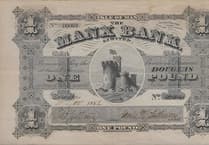An international league table of broadband speeds puts the Isle of Man at 50th in the world, way behind Jersey at 14th and the UK at 31st.
One upshot is that downloading a 7.5GM high definition film here takes an hour and 53 minutes. In the UK, it takes 62 minutes, according to figures from cable.co.uk
With internet speeds so vital for for business, the survey will spark fears that the issue could damage the island’s competitiveness.
The Isle of Man is one place ahead of Kenya and two ahead of Guernsey.
Manx Telecom says the picture is more complicated and the simple cable.co.uk figure could be misleading.
A quick trawl through a price comparison site in the UK promises several companies offering ’unlimited’ broadband at a speed of 17Mb a minute for £18.99, including line rental and VAT.
The cheapest ’unlimited’ Manx Telecom package, including line rental and VAT, is £42.90. Its Ultima broadband, which offers ’superfast’ speeds, costs more again.
Given that broadband providers tend to brand name their different broadband products, it can be hard for customers to work out exactly how their service is being provided and whether it is the physical infrastructure or the internet service provider (retail) element which is determining the speeds.
For example, the picture is confused even further by the planned roll-out of an ’ultrafast’ broadband service of Fibre To The Premises (FTTP), whereby a fibre-optic cable is provided all the way to an individual home or business.
Manx Telecom says that this will provide download speed options between 20Mbps and 1Gbps, with upload speed options between 1Mbps and 200Mbps. This has already been trialled in one small area of Douglas and is due to be rolled out to 77 further areas at the end of this year.
The island’s broadband provision has been provided by investment from Manx Telecom and Kevin Paige, chief information and technology officer at Manx Telecom (circled), said that this has not been the case in many other countries around the world where it has benefited from state aid.
In the UK a government agency, Broadband Delivery UK, has been giving out over £500 million over the last few years to deliver ’superfast’ broadband and local full fibre networks.
Jersey Telecom is state-owned and the government, via a freeze on the telecommunications company dividend payments, provided £19 million to the Gigabit Isles programme, which aimed to install 990km of new fibre optic cable, giving ’ultrafast’ broadband to around 42,000 homes and every business on the island.
Mr Paige said: ’Higher speed services are available to a high proportion of the island population - in fact, thanks to investment by Manx Telecom superfast broadband is available to 93% of homes and businesses on the island - but not all customers have migrated to that service, which means that they are yet to experience the higher performance that’s available.
’Extensive roll-out of fibre to the premises has not been achieved in other jurisdictions without some form of government funding. Manx Telecom is continuing to reduce the wholesale costs of superfast broadband and is continuing to work on fibre to the premises roll-out for the Isle of Man, in association with discussions with the Isle of Man Government.’
The Examiner asked the government’s Communications Commission about the cable.co.uk league table but it declined to comment, saying that it was an independent study that the commission has had no input to or involvement with, so it was more appropriate that they leave a response to the operators.
Mr Paige said: ’Manx Telecom is always interested in data that provides an insight into the services we offer on the island. There are a number of these types of reports issued each year, but we haven’t seen data from this source before. The data presented by cable.co.uk is a small sample of the island’s connections and isn’t conclusive.
’It’s important to make the distinction between the speeds that the Manx Telecom network infrastructure is capable of delivering, the service an individual chooses from their internet service provider, and the other factors that can impact on the overall end-to-end broadband experience.
’For example, if an individual chooses superfast broadband, the Manx Telecom network may be delivering 80Mbps to the router, but the actual speed experienced will be ultimately impacted by the quality of the customer’s router, WiFi quality, or the number of devices being used at any one time.
’Also, at the other end of the connection, the speed may be impacted by the website being visited and how many others are using that particular site at any one time.
’The cable.co.uk report is a mixture of measures that assess the end-to-end experience. Our own on-island network data indicates that the average Isle of Man downlink and uplink speeds are significantly higher than what this report identifies, but we do recognise that today over 50% are still using our standard broadband service rather than our superfast broadband service, this will have an impact on the measured customer performance.
’We are aware that small areas of the island at this stage are not in range of superfast broadband services, where this is the case a mobile network service may be an alternative.’
Sure’s head of product, Mike Fawkner-Corbett said: ’Many factors affect fixed broadband speed including the length of the copper line to your property, the age and power of your router, wiring in the home and the number of devices trying to connect at the same time.
’We’re seeing an increasing trend of customers replacing their home phone line and home broadband services with 4G broadband which can offer better speeds than a standard home broadband (ADSL) service does. The average speed that we have recorded on this service is 40 Mb/s, which would actually place us in the top three jurisdictions in the world in the broadband rankings.’
One hundred and eight-nine jurisdictions were in the survey. Yemen came last.




